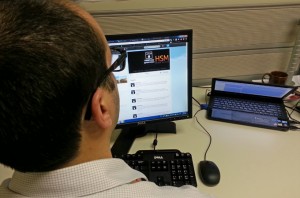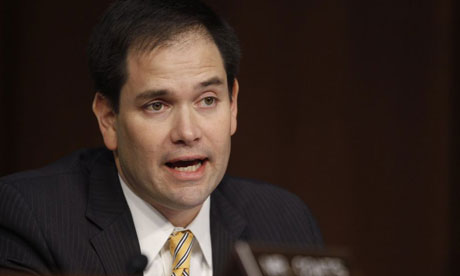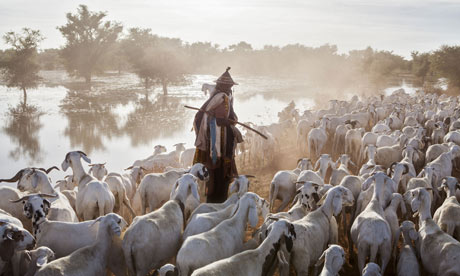|

On January 24, 2012, Twitter shut down al-Shabaab’s old account, HSMPress, after the group tweeted photographs of a French commando they had killed and threatened to execute Kenyan hostages. Given al-Shabaab’s history of violence, many saw the suspension as a justified move against the spread of terrorist propaganda. But to al-Shabaab, it was censorship, plain and simple.
“Freedom of speech is but a meaningless rhetoric,” they tweeted. “So long @HSMPress! You might be gone, but your legacy lives on.”
Twitter has long promoted itself as an advocate of free speech, even when that speech is hateful. The social media network has refused to suspend the accounts of other violent groups – including the Taliban, Hezbollah, and the al-Qaeda affiliate Jabhat al-Nusra – despite numerous requests from government officials and activist organisations to do so. In January 2012, when Twitter announced they would selectively block tweets on a country by country basis, they extolled their transparency, noting that all censorship requests would be documented on the website Chilling Effects.
The suspension of al-Shabaab would seem to contradict Twitter’s policy on free speech. But Twitter has never made it clear what that policy is. After deleting al-Shabaab’s account, Twitter refused to comment on the reason for the suspension or on whether similar action would be taken against other terrorist groups. When I asked a Twitter representative via email to explain their policy, he would not answer, telling me only that they “don’t comment on individual accounts for privacy and security reasons”.
In the absence of a clear explanation, analysts have offered their own. Some speculated that al-Shabaab’s account violated Twitter terms of service, which prohibit specific threats of violence. Others suggested it violated US law against providing material support to individuals labelled Specially Designated Global Terrorists, a designation which applies to al-Shabaab but not to groups like the Taliban.
An ambiguous policyBut both these points proved moot when an unrepentant al-Shabaab rejoined the network a week later and resumed its crusade. Further confounding the issue was the fact that al-Shabaab’s Arabic and Somali-language accounts had remained open while their English-language account was closed, despite their similar content. Twitter’s policy on terrorists is not only inconsistent, it lacks transparency – going against the very values the social media network claims to support.
Whether or not Twitter should censor terrorist groups is a matter of debate, and there are strong legal and moral arguments for both sides. But it is impossible to have a debate when Twitter refuses to come clean about its own actions. “Twitter’s policy on extremists comes off like one guy who knows nothing about the subject clicking around at random looking for trouble,” tweeted terrorism analyst JM Berger, who observed that the network embraces a similarly scattershot approach to the suspension of white supremacist groups.
As a private company, Twitter reserves the right to set its own standards for censorship. But as a key platform for a diverse array of political players, it should be open about its rationale. The ambiguous nature of Twitter’s suspension policy opens it up to abuse by those seeking to silence an opponent. As it turns out, merely mentioning that a Twitter account is associated with terrorism can ostensibly get it shut down.
On January 31, one week after Twitter suspended al-Shabaab, I tweeted that the Islamic Jihad Union – a violent militant organisation originally from Uzbekistan – had joined Twitter. The IJU’s account consisted mainly of Uzbek-language tweets and links to its website, Sodiqlar.info. Unlike al-Shabaab, there were no threats or graphic imagery. But within five minutes of my tweet, the account was suspended.
A few hours later, I noticed that the IJU had a second account, and I tweeted about it. Again, within minutes, the second account was suspended. When this happened the first time, I was hesitant to believe it had to do with me, but such a coincidence seemed unlikely to happen twice. For whatever reason, the fact that I announced the existence of the group – which had been on Twitter for over a month before it was removed that day – seemed to trigger its suspension.
Unless a Twitter employee managed to read and analyse the content of an Uzbek-language account in the few minutes between when I tweeted about it and when they shut it down – a highly improbable scenario – then they censored the account based on my tweets. Ostensibly I could have identified any Uzbek account as being a member of the IJU, and the same censorship could have occurred.
Censorship based on hearsay leaves users vulnerable to attack. Many repressive regimes accuse critics of being terrorists in order to silence them, and it is easy to imagine governments employing this tactic on Twitter in order to suspend an account. The consequences are particularly ominous for users speaking less common languages. By privileging both English-language terrorist accounts (like al-Shabaab’s) and English-language depictions of terrorist accounts (like mine), Twitter reveals a Western bias that could skew perception of non-Western politics, leading to the unjust suspension of innocent parties.
On February 1, the Islamic Jihad Union rejoined Twitter with a new account, where they resumed tweeting about the oppression of Muslims and entreating readers to join the struggle. Their new account has remained open, as has al-Shabaab’s. Perhaps this marks a shift in policy, or perhaps it is a reaction to the negative publicity both suspensions generated. Since Twitter refuses to clarify its actions, it is impossible to say.
Opaque transparency
The presence of terrorists on Twitter raises questions about freedom of speech, national security, international law, and corporate power. Who decides if a person is a terrorist? If an account is suspended, should that suspension be based on content or affiliation? What is the policy towards official accounts of authoritarian states – like North Korea – that spread propaganda and murder civilians? What about those of countries like the United States engaged in wars many find inhumane and unjust? When Twitter blocks tweets on a country by country basis, how should they respond to terrorists who profess allegiance to no nation? How should governments reconcile Twitter’s role as a purveyor of terrorist threats with its utility for gathering intelligence?
These issues are important – particularly since, as terrorism experts Aaron Y Zelins and Will McCants have noted, in-depth research on how terrorist groups operate on social media has barely been conducted. But we will not be able to address them unless Twitter is open about its policies. Censorship that goes undocumented goes unchallenged. At the moment, Twitter representatives refuse to talk, although they continue to release updates applauding their transparency.
“We believe the open exchange of information can have a positive global impact,” they write. “To that end, it is vital for us to be transparent about requests to Twitter from governments and rights holders.” How refreshing it would be if the social media network held itself to the same standards.
Sarah Kendzior is an anthropologist who recently received her PhD from Washington University in St Louis. |








